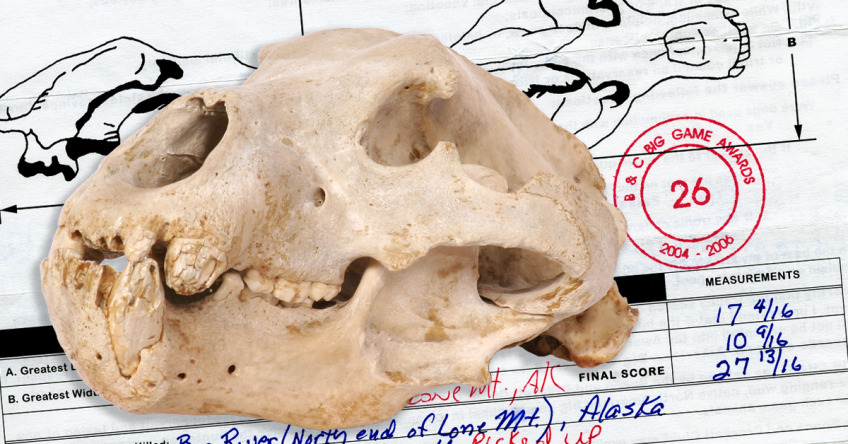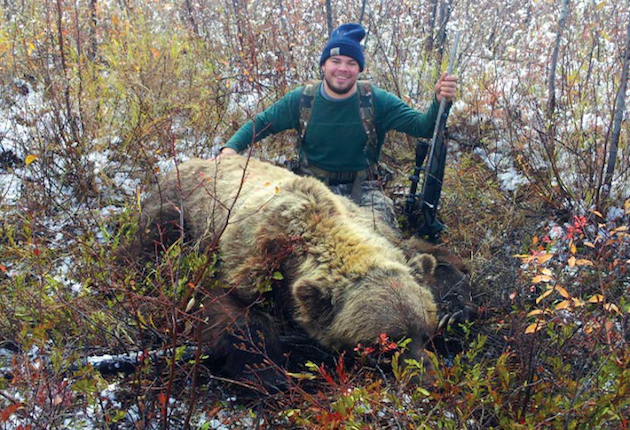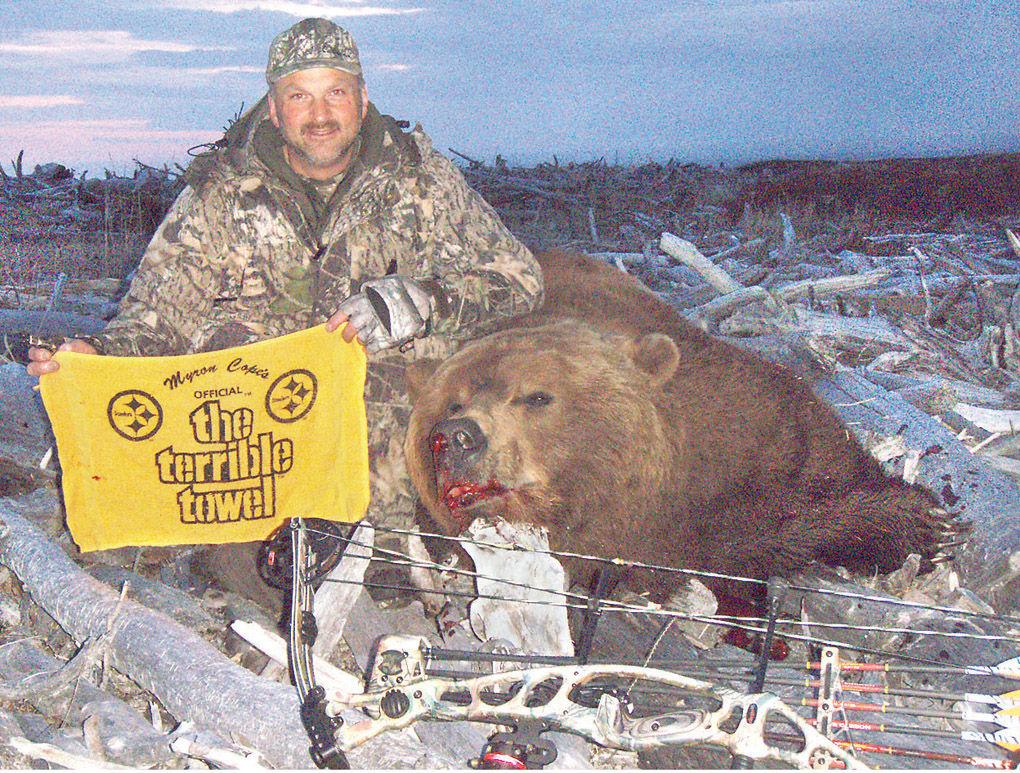Ever heard of the phrase bear hug? Bears may seem like cuddly creatures but they can potentially kill you by giving you just that, literally. Let’s take a look at some of the largest grizzly bears that made it to the world records.

Number 1
- Hunter: Picked up by Gordon E. Scott
- Score: 27 13/16
- Location: Lone Mountain, Alaska
- Year: 1976
Can you believe that the grizzly bear skull that will hold the world record for the largest one ever has been sitting in an attic for three decades?
As documented in Boone and Crockett Club, while out hunting for black bears in the spring of 1976, Scott stumbled across what seemed like the remains of a grizzly, all covered with moss overflowing with ice. Some of the teeth were missing and there was still some hide and meat on the skull. After cleaning it, he decided to store it in his attic. 30 years later, when remodeling his attic, Scott once again came across this skull. He scored it only to be surprised by how bigger it was than he originally thought. He then had it officially measured and was amazed to learn that it was, as a matter of fact, the largest grizzly ever to be recorded.

Source : sportingclassicsdaily.com
Number 2
- Hunter: Larry Fitzgerald
- Score: 27 6/16
- Location: Fairbanks, Alaska
- Year: 2013
The second largest grizzly bear recorded is one that Larry Fitzgerald hunted in 2013. The bear’s skull scores 27 6/16 (missing the world record by just 7/16 inches), making it the largest grizzly ever taken by a hunter, and the second largest overall.
According to Fox News, Fitzgerald was moose hunting with his pal near Fairbanks, Alaska in September when they came across fresh bear tracks in the snow. Upon discovering the gigantic bear, standing about 9 feet tall, he brought it down in one shot to its neck using his Sako 300 rifle from 20 yards away – earning him a place in the record books.

Source: tomnews.com
Number 3
- Hunter: Rodney Debias
- Score: 27 3/16
- Location: Unalakleet River, Alaska
- Year: 2009
During a 10-day archery hunt in Alaska in 2009, Rodney Debias encountered an enormous grizzly bear. As reported to The Tribune Democrat, Debias mentioned, “It has been my goal since I was a kid to take a grizzly with a bow.” After five unsuccessful hunting trips, circumstances were finally in his favor.
After stalking the bear, at 29 yards, Debias sent an arrow through the massive grizzly’s chest. The bear growled and ran but it only reached about 60 yards before falling hard. This earned the record for one of the largest grizzly bears hunted by Boone and Crockett Club, and by Safari Club International as the world record archery bear.
In April 2011, Rodney Debias penned an article recounting this encounter in Bowhunter. If you’re interested and would like to know more about his hunt, don’t hesitate to give it a read.
Bears are powerful and majestic creatures that are ferocious by nature. Their strength and size can easily intimidate anyone, just one swipe of their huge paw and you can be a goner. It is only proper to always proceed with caution if you encounter a bear.
Frequently Asked Questions (FAQ)
What is the largest bear in history?
The Arctodus simus, commonly known as short-faced bear or bulldog bear, is the largest bear ever recorded in history. As stated in the North American Bear Center, it has a carnivorous diet and despite weighing 1,500 pounds, it could run over 40 miles per hour making it the fastest bear that ever existed. On its hindlegs, it stood as tall as 12 feet, and even on all fours, it could look a man in the eye. Sad to say, this species became extinct 12,500 years ago.
What is the most aggressive bear?
There are quite a few bears that can turn aggressive at a given moment but these two take the cake: polar bears and grizzly bears. They are the most aggressive bear species there is.
Bears are hard to come by, unfortunately, due to climate change, we are seeing more and more of them out of their usual habitat. Polar bears no longer stay in the Arctic and can be found further south. Grizzly bears are no different as they can be seen rummaging for food in close proximity to humans. Since their source of food has become scarce, they venture to places where humans reside resulting in unexpected encounters that can trigger their aggression. Bears are territorial creatures (especially grizzlies) and they’re very protective of their cubs so it’s natural for them to defend. A situation that can turn pretty ugly and can even result in death.
What is the smallest bear?
Named after the golden patches on their chest, grow about 5 feet long, and weigh up to 150 pounds, sun bears are nicknamed the smallest species of bear. Given their size, they’re agile yet strong. Furthermore, sun bears are excellent climbers and like to eat honey as their favorite snack.
What is the rarest bear called?
In accordance with National Geographic, the rarest bear (that’s estimated to have a mere few hundred in number) comes from the American Black Bear species called Kermode bear. As stated in the article, “If both parents (no matter their color) have the same mutation in a gene that affects pigment production, their offspring will have white fur.” Can be found exclusively in the islands and coasts of the Great Bear Rainforest in British Columbia. Believed to be sacred and supernatural creatures, locals call these bears spirit bears or ghosts. Get a sneak peek of this amazing bear in National Geographic.
Can a human beat a bear in a fistfight?
Your only probable chance of beating a bear is if it’s a cub and the mother is away. You can’t outsmart them, and you definitely can’t outrun them. If I were you, I wouldn’t even dream about it.
Wesley Larson – a bear biologist – said in Newsweek that a fight between a man and a bear would be a “very uneven fight.” He further stated, “They are faster, stronger, better equipped with both teeth and claws… So both offensively and defensively we are no match for them.”
Although bears are territorial and defensive creatures, such encounters are rare not only in the human perspective but for bears as well. It is more likely that bears will run when confronted.

